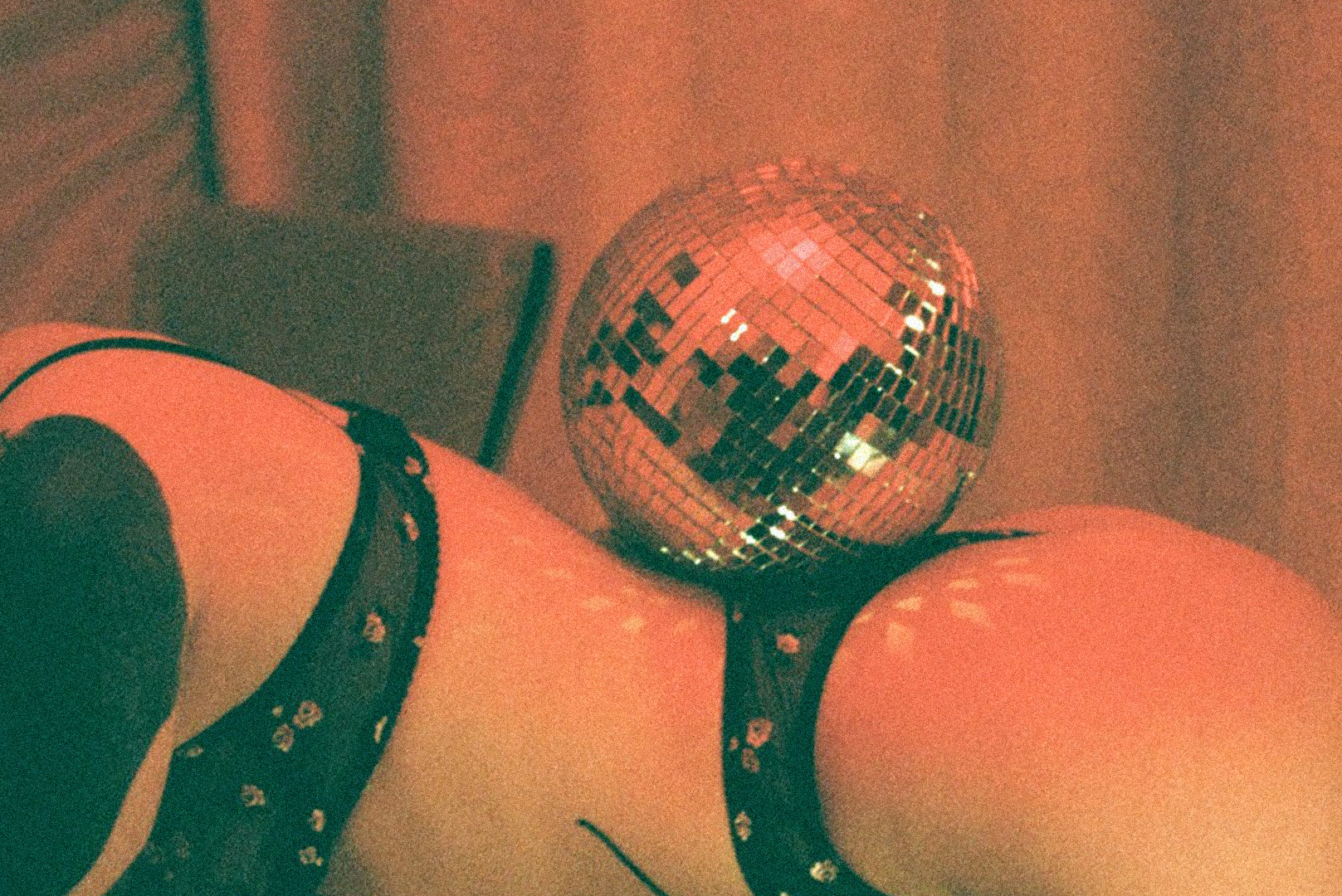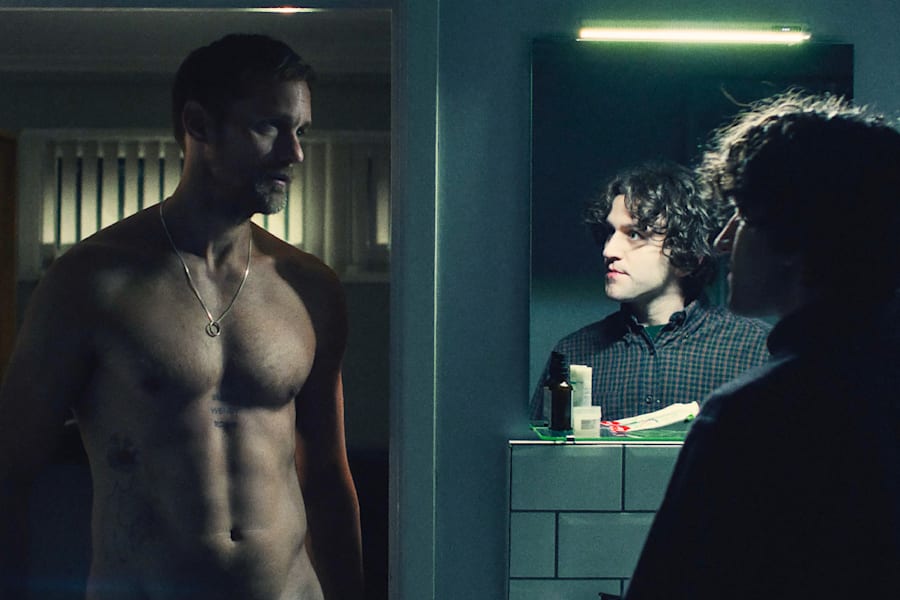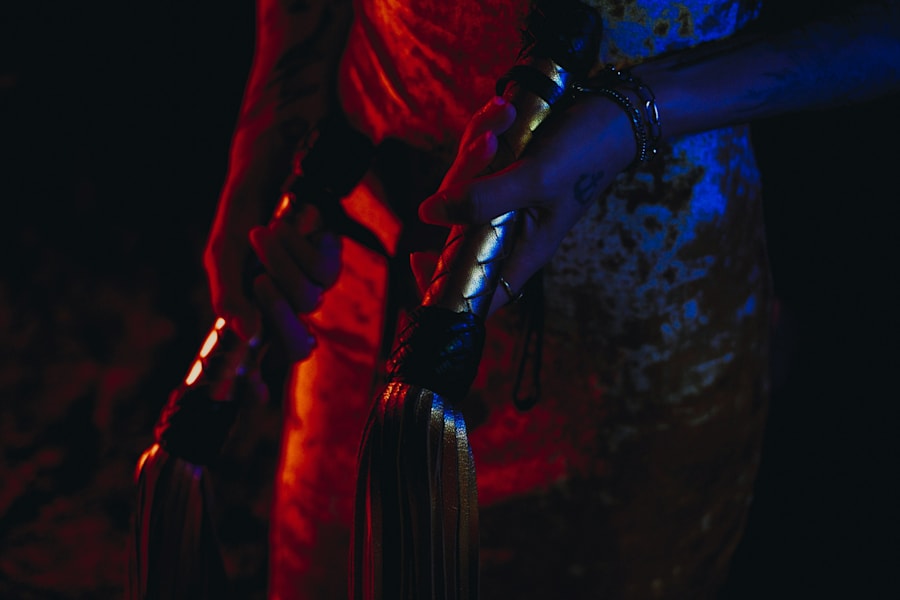How lesbian cruising is creating space for radical queer sexuality

What assumptions can we challenge when given the space to boldly be ourselves? And what types of freedom might we find?
For attendees at one Montreal event, the answer lies in a queer, lesbian cruising party—a space for public, casual, anonymous connections—opening the doors to a different kind of intimacy.
The same stereotypes and assumptions about lesbians and dykes (a reclaimed term that often signifies a strong, unapologetic stance in relation to one's queerness) have been around for years. These generalizations tend to paint lesbians as wanting to U-Haul (meaning, to shack up in a monogamous relationship), and not wanting casual sex or non-monogamy. Conversely, gay men are archetypically thought to date openly and non-exclusively, and to want to have a lot of casual sex.
When looking into the reasons behind these assumptions, writer Eleanor Scott says in “Searching for sex: A look at the hidden practice of lesbian cruising”: “Stereotypes of lesbians are inextricably linked to misogyny and homophobia, punishment for opting out of sexual availability to men. Lesbians are either painted as over-sexualized within a male gaze […] or entirely desexed […]. Painted as […] overly sensitive and socially reclusive, lesbians are presumed to simply have no interest in cruising or anything outside of what is considered their sexual norm.”
But this isn’t the case in Montreal, nor in other contemporary queer spaces I’ve frequented in North America, where non-monogamy is actually quite common. In my experience swiping on Feeld, a huge number of queers and lesbians on the app are looking for non-monogamous dynamics, hookups, or FWB (friends with benefits), while those searching for monogamous relationships tend to be extremely clear about it.
So, with that being said, why don’t overtly sexual spaces, like we see men frequenting in Montreal’s gay village, exist for other queers? And why did all the lesbian bars in Montreal, and dozens of other cities in North America, shut down long before 2020? Are the old assumptions that lesbians don’t want to go out or hook up causing bar owners and party promoters to be less likely to take risks, fearing these events and spaces might fail? If it is true that women and non-binary people make less money than men and therefore have less disposable income to spend on drinks at bars, what is the solution to the problem of creating sustainable queer and lesbian parties and venues?
Enter Grind’her, a party started in 2018 at Brasserie Beaubien, a Montreal dive bar, that aimed to create a space in which dykes, lesbians, queer women, and non-binary people could cruise and express their sexuality and desire publicly and openly. No more longing glances like in Carol or Portrait of a Lady on Fire; the lesbians and queers of Grind’her were active agents of their own sexuality. Founders Estelle Davis and Moohk didn’t just want to create dyke spaces; they wanted to create explicitly sexual lesbian and queer spaces that emulated the experience of gay men, spaces where “sex, or at least, a sexual energy, is palpable.” Davis adds, “We wanted to try and emulate that feeling, the one where the possibility of sex floats in the air like warm fog, even if just for one night.”
And the result? By February 2025, seven years after its inception, Grind’her had become an established and extremely successful party that sold out in a week and hosted over 200 lesbians and queer people. Wanting to make sure the event exists as a radical space beyond its approach to sex and sexuality, Grind’her is always a fundraiser, and has raised thousands of dollars for many important organizations like TRAPS, a transfeminine mutual aid initiative, the Black Indigenous Harm Reduction Alliance, and the Montreal Pro-Palestine Activist Legal Fund.
During the first event in 2018, the dykes and queers were more hesitant. The space was there, but we didn’t always know how to take advantage. People were still too shy to go up to each other, and apprehensive about hooking up with anyone they didn’t come to the party with. What were we supposed to do? Just walk over to someone? What are the cruising cues? How do you escalate from talking to a stranger to making out?
But over the years, and the different Grind’her iterations and locations, the party has evolved and adapted; by 2025, the lesbians, dykes, and queers knew what to expect, had been practicing for years, and were actively cruising. The shyness might still have been there, but it was overridden by the excitement of partaking in the event.

Loud and liberated
When I walked into Cinéma L’Amour, a historic Montreal porn theater, in February 2025, the queers were everywhere: bare asses out, thrusting against each other, making out furiously, people on their knees going down on others, without a care for who was around; there were dozens of people standing against the walls, looking for their next hookup. Queers would be fondling each other on the dance floor, before one person led the other to an available seat. I turned to my partner and said, “it feels like a scene from a Samuel Delany book, except with dykes instead of gay men,” and they grinned at me. We had been talking about Samuel Delany as one of our cruising messiahs for years, a known frequenter of porn theaters, wanting to know how we might also participate in such activities. Grind’her was the solution.
After some time on the dance floor, my partner and I sat down in one of the rows of seats. We didn’t realize a threesome had started behind us until someone started kicking us in the head. It was accidental and the person didn’t notice. One of the queers was lying flat on the top of the seats, with one person (the one kicking us) eating their ass out, while making out with and fondling another. We were so delighted by the situation that we didn’t mind the accidental kicking.
In front of us, there was a person standing up, hip against the seat in front of them, being eaten out by another person sitting on the seat behind them. Their eyes were open, and they were scoping out the room, getting as much pleasure from the head as they were from watching others getting fucked.
The debauchery was loud and present.
It was liberating.The space was so filled with people having sex that it made others also feel more comfortable to cruise and have sex. Despite so many people looking around for their next cruise, the scale of the event actually made it feel deeply anonymous. My partner and I managed to hook up on the heels of the previously mentioned threesome without any of the people we arrived with noticing. It was exhilarating.
As queer liberation becomes more mainstream and corporatized—and LGBTQ+ people feel the need to become less overtly sexual, in order to be accepted into this mainstream—gay, lesbian, and queer spaces that refuse to be digestible for straight people continue to ensure that our sexualities aren’t erased from our identities. When hateful criticism portrays queer sexuality as dangerous, it’s freeing to remember that queer sex and sexuality are huge parts of our lives. Our sexualities deserve to be enjoyed and celebrated, rather than hidden. Grind’her is doing the work of keeping us radical, intentional, and unashamed; we are here, we are queer, and we do often enjoy sex.
If you’re inspired and curious about connecting with people who are open about their desires, we’re waiting for you on Feeld.


